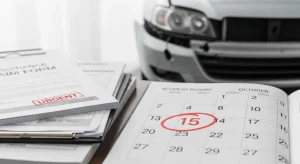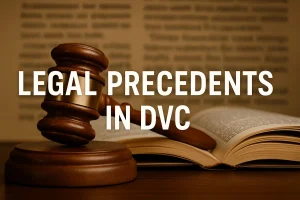When you’ve been in a car accident, your focus is on recovery—financial, physical, and emotional. But as soon as you report the accident, the insurance adjuster gets involved. And how you speak with them can make or break your claim.
Insurance adjusters are trained to protect the company’s bottom line. That means they’re not necessarily looking out for your best interests. In this article, you’ll learn how to communicate with adjusters effectively without putting your claim at risk, what to say, what to avoid, and when it’s time to bring in legal help.
Why Insurance Adjusters Aren’t Neutral Parties
Insurance companies are businesses, and adjusters work to minimize what the company pays out. They may seem friendly, but their goal is to gather information that helps them reduce or deny your claim.
A single misstatement—such as speculating about fault or downplaying your injuries—can weaken your case. Especially if your conversation is recorded, your words could be used against you later.
Best Practices When Talking to Insurance Adjusters
Stay calm and respectful at all times. Adjusters are more likely to cooperate with people who are professional and organized. Focus on delivering only the facts—such as the time and location of the accident, the vehicles involved, and whether a police report was filed.
Avoid admitting fault or guessing what happened. Even phrases like “I think” or “I’m probably okay” can open the door to reduced compensation.
Keep your answers brief and neutral. You’re not required to provide a detailed narrative or go beyond what’s been asked. If you’re unsure about a question, it’s okay to say you don’t know or prefer not to answer at this time.
What to Avoid Saying at All Costs

Many people unknowingly hurt their claims by saying too much. Don’t tell the adjuster you’re feeling fine or that your injuries are minor. Some injuries, like whiplash or concussions, may not show up until days later.
Never admit partial fault. Even a casual statement like “I didn’t see them coming” can be used against you. It’s not your job to determine fault—let the evidence speak for itself.
And avoid agreeing to a recorded statement without legal guidance. It might sound like a simple formality, but it often serves the insurer’s interests, not yours.
Document Every Interaction
Keep a written record of every call or email with the adjuster, including names, dates, and summaries of conversations. If you speak by phone, follow up with an email that recaps what was said to create a written trail.
Also, save all related paperwork: estimates, reports, letters, and photos. This keeps you organized and reduces the risk of adjusters taking control of the narrative.
Watch Out for Common Adjuster Tactics
Adjusters are trained to use subtle strategies that benefit their employer. They may downplay the severity of your injuries, suggest you don’t need certain repairs, or pressure you to settle before you’ve seen the full extent of your losses.
Sometimes, they’ll delay communication to make you desperate—or offer a quick lowball settlement hoping you’ll take the cash and move on. Recognizing these behaviors helps you stay firm and protect your rights.
Know When It’s Time to Get a Lawyer Involved

If the insurance company denies your claim, drags its feet, or makes an offer that doesn’t come close to your actual losses, it might be time to consult a personal injury attorney.
Lawyers who deal with insurance claims understand how to negotiate, challenge unfair tactics, and get you the compensation you deserve. Many offer free consultations, so there’s no risk in asking questions before moving forward.
Final Thoughts: Your Voice, Your Claim
Communicating with insurance adjusters isn’t just about being polite—it’s about being smart. A single statement can reduce your payout, delay your claim, or even cause it to be denied.
Stick to the facts, avoid unnecessary details, and document everything. If at any point you feel pressured or unsure, don’t hesitate to seek professional help. Your claim—and your future—could depend on it.



